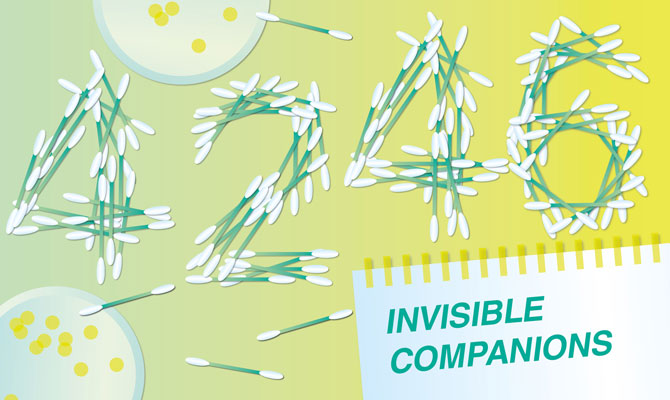
Selenium – a small element with great significance in research and everyday life
It might sound rather nondescript from the name alone, but selenium is actually of huge importance for our health and well-being. This trace element is not only present in the food that we consume, but also plays a crucial role in a number of different research areas – from chemistry to biotechnology. Whether used in solar cells or as an important component of enzymes, selenium finds its way into everything – and we’re often unaware of just how ubiquitous it is.
What is selenium and why is it so important?
Selenium is a chemical element that belongs to the semimetals, and shows similar properties to sulphur in many respects. It occurs naturally in small amounts, and is often found in association with other minerals – for example, as an impurity in pyrites.
Beyond this, selenium also plays a very important role in biology. It is an essential trace element in many processes – for instance, it’s a component of important enzymes such as glutathione peroxidase, which protects our body from oxidative stress. You might be asking at this point what oxidative stress is: Simply put, it’s a process in which free radicals attack our cells – a mechanism that is associated with diseases such as cancer and cardiovascular disease, as well as with ageing. But selenium is not just important for the human body – it’s also used in animal nutrition, to promote the health of farm animals.
An all-round talent in research
However, selenium is not just important in nutritional science: It’s widely used in chemical and physical research as well, to develop innovative materials and applications. One outstanding example of this is photovoltaics: Certain selenium compounds, such as copper indium gallium selenide (CIGS), efficiently convert sunlight into electrical energy. Selenium is therefore an indispensable component in the development of solar cells that are intended to enable a sustainable energy future.
Selenium is also used in the semiconductor industry, since it has properties that allow electrical current to be conducted in certain areas of a material while others remain isolated. This is essential for the production of semiconductor devices used in computers, smartphones and other electronic devices.
Everyday product or high-tech material?
In addition to its role in electronics and biology, selenium is also widely used in chemical synthesis. In organic syntheses, it is used as a catalyst to accelerate certain reactions. Selenium compounds often play a role in redox reactions, where they act as electron acceptors or donors, thereby producing specific products that are of great importance for further processing in the pharmaceutical industry or in the production of plastics.
The versatility of selenium is evident in many different research fields. For laboratories and scientific institutes involved in organic chemistry, materials science and/or biochemistry, selenium is an indispensable element used in many experiments.
The intake of selenium is not only important for humans, but also a crucial factor in agriculture. Selenium-enriched fertilizers are used to increase its content in plants, and thus throughout the food chain as a whole.
This is one such example of how selenium present as a trace element in small amounts can have a great effect further down the line. Rather than being an inconspicuous element, selenium is therefore a key player in many areas of science and everyday life.
Choosing the right laboratory products can determine the success of your research – and we’re happy to help. Visit our online shop at: www.carlroth.com.
https://www.dge.de/wissenschaft/referenzwerte/selen/
https://www.bzfe.de/ernaehrung/ernaehrungswissen/gesundheit/das-immunsystem-staerken/



